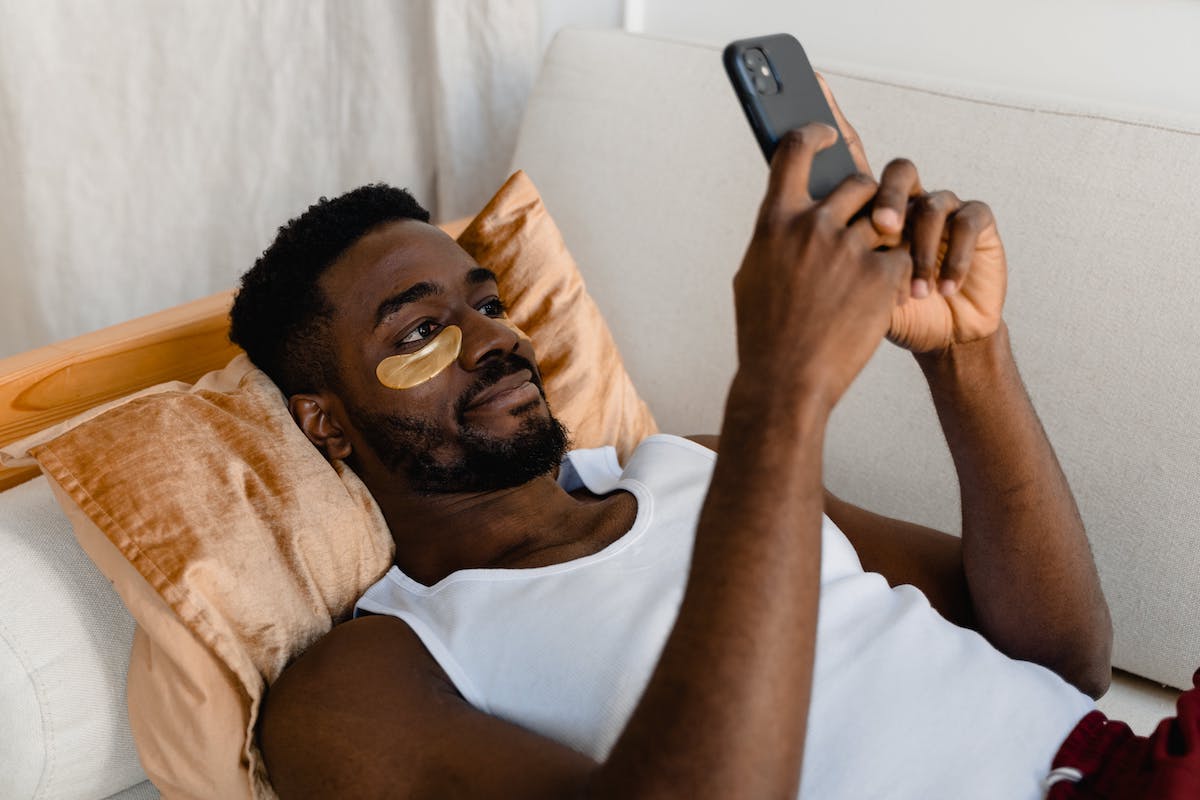
Skincare often gets relegated to a vain endeavor — something reserved for aesthetics. However, the skin is the body’s largest organ. Keeping the skin in tip-top is part of an overall approach to health. Sound hokey?
The skin is our body’s first defense against invaders, such as viruses and bacteria. Damage from burns and dryness can compromise this barrier (and our health). What’s more, sun damage increases the risk of skin cancer and premature aging.
In other words, men’s skincare is not a trivial pursuit. To optimize your routine and give your largest organ some serious TLC, you’ll want to do away with bad habits and implement good ones. Consider this guide your new playbook.
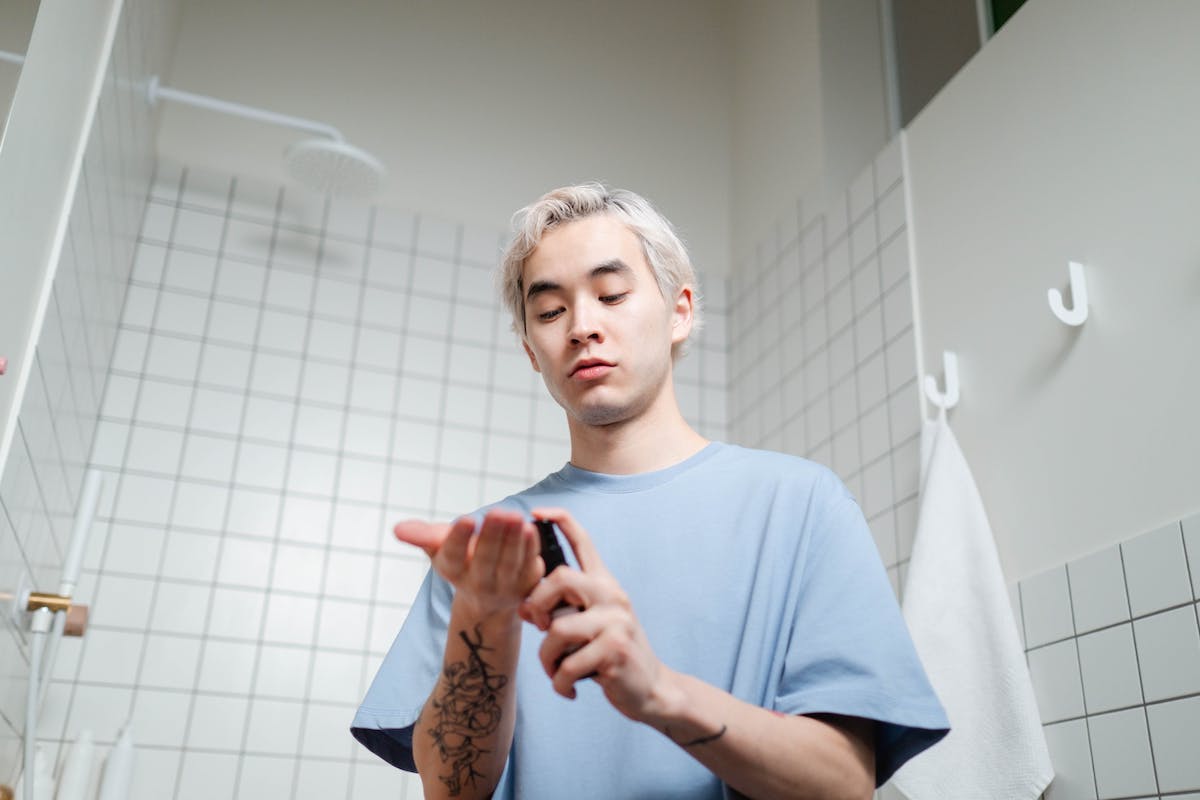
Is skincare essential for men?
Speaking of relegated, skincare is often considered a “women’s topic,” as if men don’t have skin too. Men’s skincare is just as important. Men’s skincare can be a bit unique, though. For instance, men are more likely to worry about needing sunscreen on their scalps because they tend to lose hair earlier than women. Men’s skin is also more likely to be dry (and less likely to be oily). These are generalizations. The point is that men’s skincare is a topic worth discussing. More importantly, men should consider their unique skin types and needs when crafting a routine and choosing products.
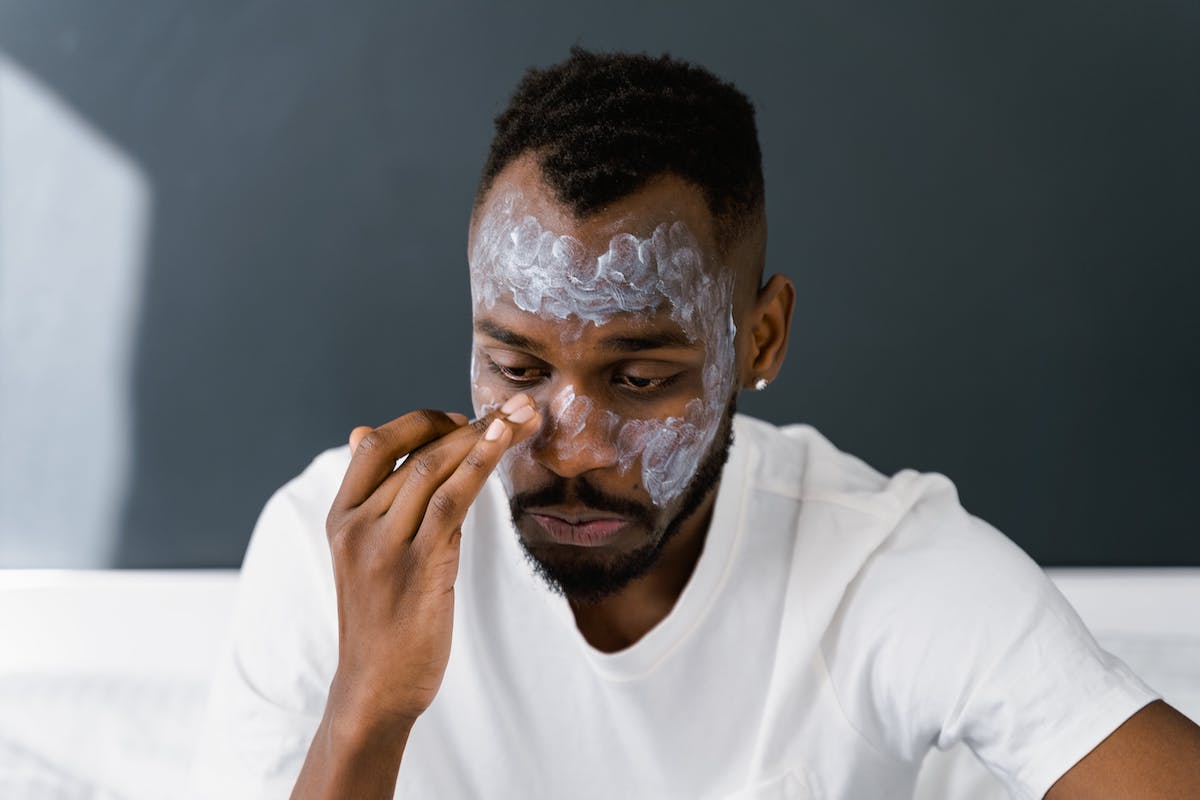
What is a good men’s skincare routine?
The answer to this question will vary from person to person. For instance, men without acne or aging concerns need not apply retinol. Generally, all people, regardless of gender, benefit from three primary products in the morning, plus a two-step routine at night.
In the morning, you will want to:
- Wash the face with a gentle cleanser
- Moisturize
- Apply sunscreen
At night, you can skip the sunscreen. You’ll still want to wash your face with a gentle cleanser and moisturize. You can apply the same cream or use a heavier one specifically formulated for the night. The point is to keep your skin hydrated and avoid dryness and cracking.
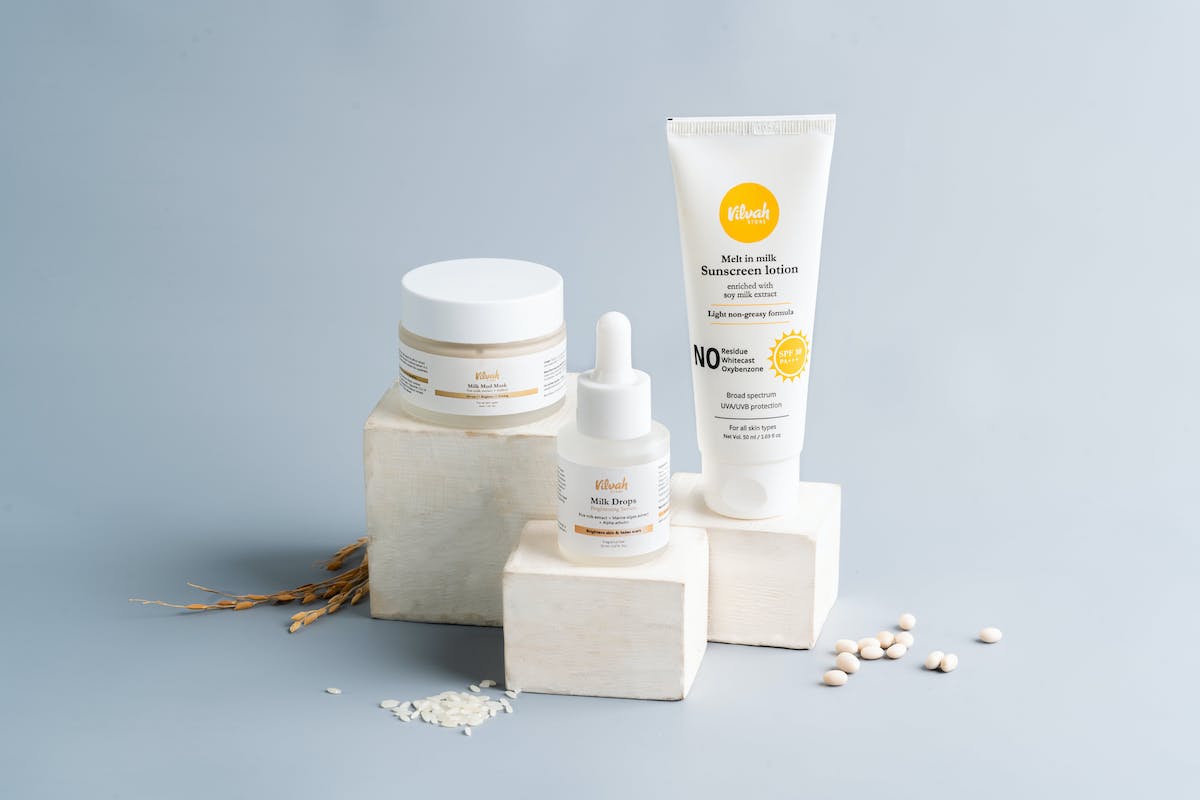
At what age should men start a skincare routine?
Men benefit from a skincare routine throughout their lives, especially as they hit adolescence (hi, acne) and their 20s. Your skincare routine will change as you age. In your 20s, you’ll focus on protection, like sunscreen. In your mid-30s, the emphasis will be more on delaying aging. If you’ve passed these decades of life, don’t worry. You can always turn over a new leaf and start a skincare routine. A dermatologist can provide personalized tips for your skin type and life stage if you’re unsure where to start.
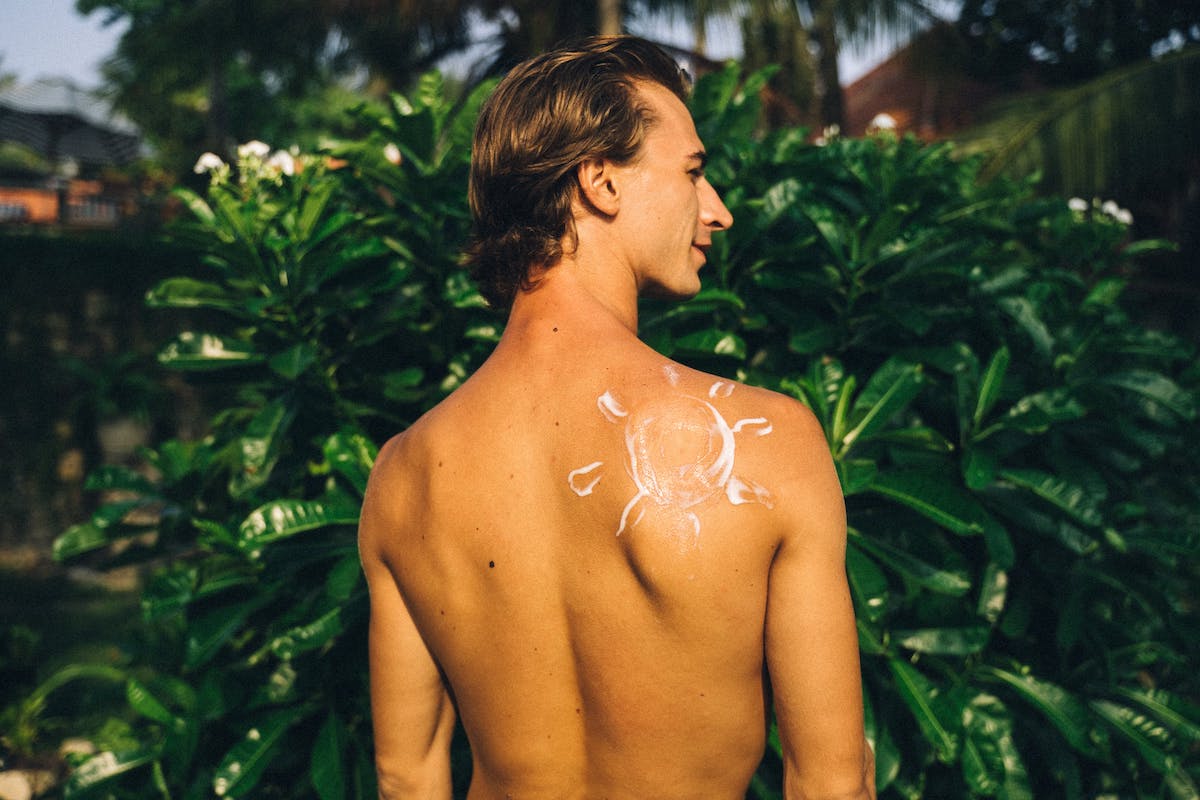
Skincare habits to adapt ASAP
Perhaps you’re setting a New Year’s resolution to be better for your skin or need to fix pesky issues like dryness, or maybe you’re concerned about sun damage risks. Whatever brought you here, adapting healthy skincare habits can keep you looking and feeling your best inside and out. These are the dos and don’ts of men’s skincare.
Find products that work for you and your skin type
Understanding your skin type (dry, mature, oily, combo, or normal) can help you find the needed products and know which ones to skip. For example, retinol isn’t necessary if you’re prone to dryness rather than pimples and not concerned about aging. Instead, you’d likely benefit from a moisturizer with hyaluronic acid. If breakouts are your bugaboo or you see wrinkles you’d rather not, you will probably want to consider using one.
Wear sunscreen
We know. You’ve heard about the importance of sunscreen 1 million times. Consider this your 1,000,001st reminder of the importance of lathering on SPF. A broad-spectrum SPF 30+ protects against most UVA and UVB rays, which combine to up the risks of cancer, sunburn, and premature aging. If you’re acne-prone and have oily skin, you may be hesitant to put on SPF, fearing more products will exacerbate breakouts. The opposite is more likely. Sunburnt skin is damaged skin. When the skin is damaged, pore-clogging invaders like dirt and dust are more likely to penetrate, upping the risk of pimples. The good news? Non-greasy sunscreens exist.
Drink water
The data don’t support the idea that drinking plenty of H2O will keep the skin hydrated. However, severely dehydrated skin can lose elasticity. What’s more, hydration affects the organs more generally. The skin doesn’t operate in a vacuum — when the heart is pumping blood or our brains are functioning well (and helping us remember to apply moisturizer daily), the skin benefits, too. Sip water and eat water-rich foods like fruits and veggies to stay hydrated.
Moisturize daily
Drinking water may not be the cure-all for dry skin. However, applying daily moisturizer will keep the skin hydrated. Apply moisturizers twice a day, every day, to ward off dryness. Moisturizers with humectants like glycerin or hyaluronic acid keep skin moist and plump.
Stop taking piping-hot showers
A hot shower, particularly on a cold day, can feel blissful. However, too-hot water can burn the skin, causing damage. Stick to lukewarm water between 98°F to 101°F.
Don’t over-exfoliate
Exfoliating can turn over dead skin cells, leaving you with glowing skin. However, exfoliating too often can be irritating. The frequency you need is unique to you and may take some trial and error. If you’re noticing redness or irritation, scale back, perhaps to once monthly versus once per week.
Reduce stress
According to the American Academy of Dermatology, stress can cause wounds to heal more slowly, increase inflammation, and increase the risks of breakouts by triggering more oil production. Try to cope with anxiety by getting a good night’s rest, exercising, practicing mindfulness like meditation, and seeing a therapist if you’re struggling. In other words, make self-care part of your skincare (and consider skincare part of your self-care).
Editors' Recommendations
- How often should you change your razor blades?
- Cucumbers help get rid of puffiness, dark circles under eyes: Myth or fact?
- The 11 best hair styling creams for men to get the perfect do
- The 15 best body lotions for dry skin to lock in moisture
- Make grooming easy: The 8 best beard trimmers to get the job done




